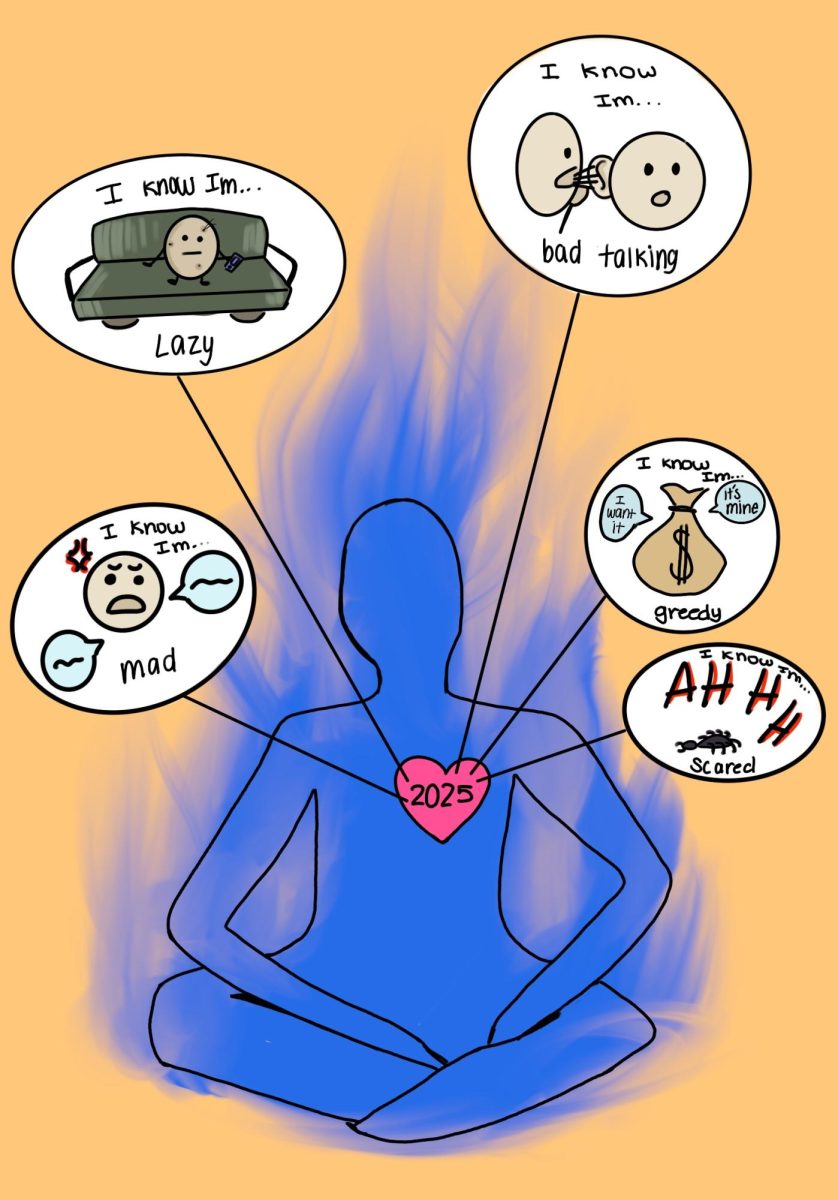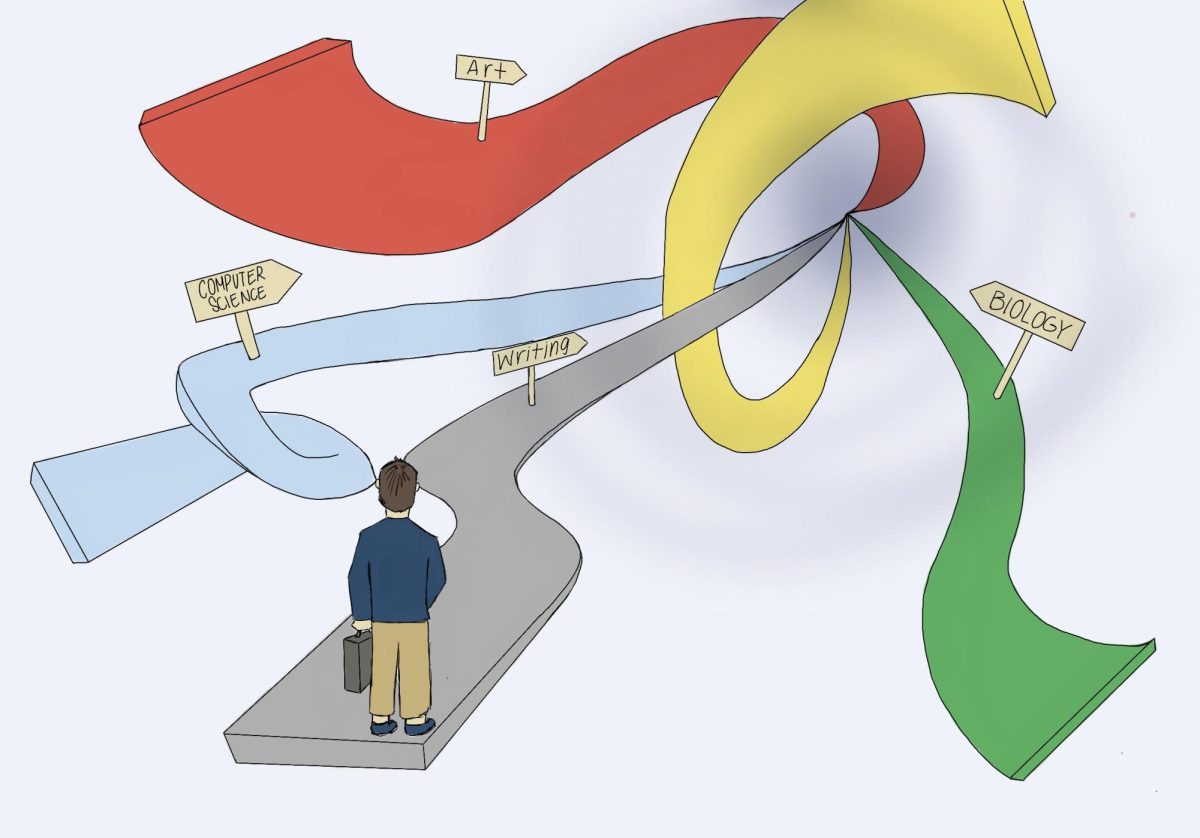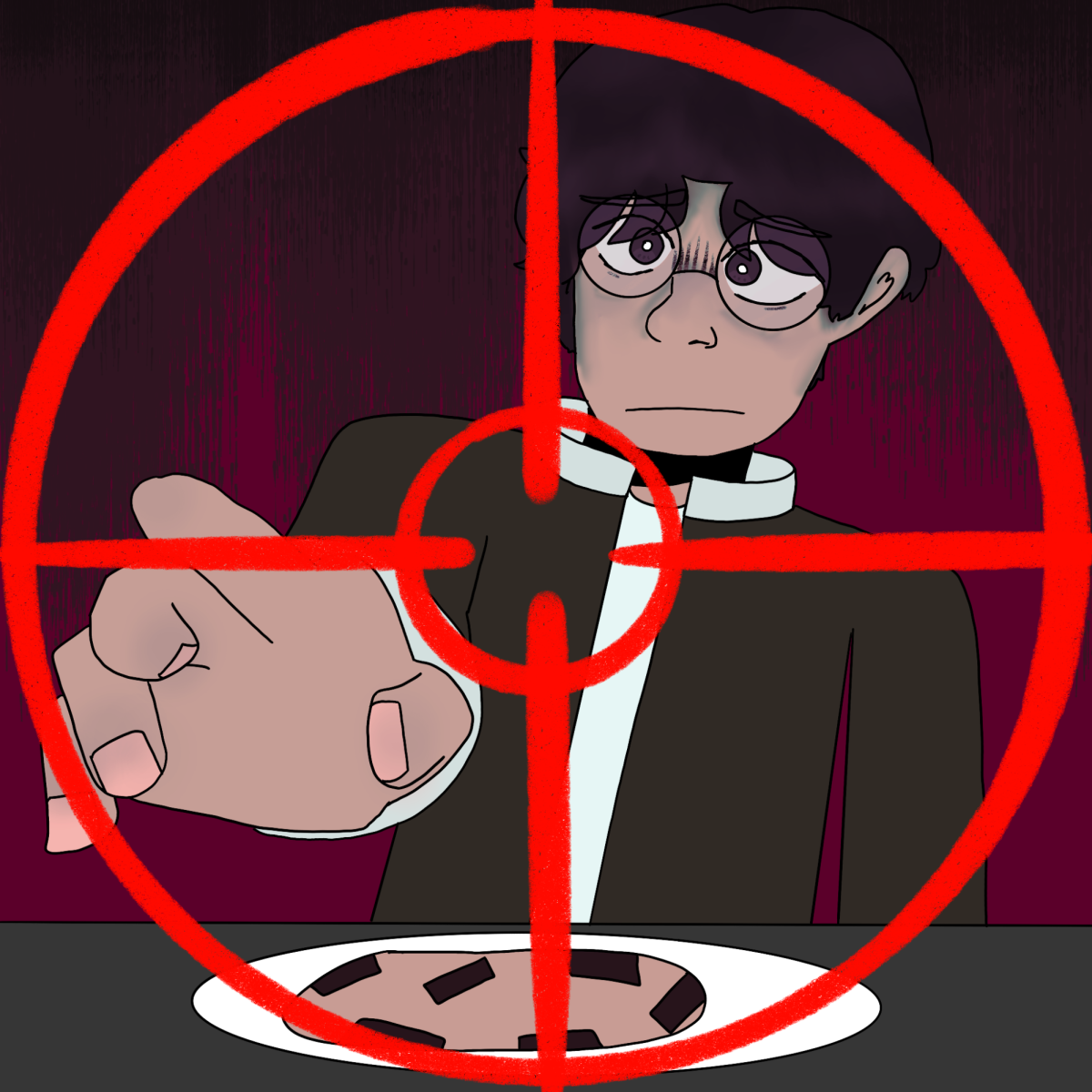I often find myself apologizing for things others notice about me. I’ll find myself saying, “Sorry if I talked too much,” “Sorry if I made that awkward,” or even, “Sorry if I was annoying.” Overthinking how others perceive me has been my superpower for the past three years and has put me on the path of over-apologizing. I find myself feeling as if I’m stuck in a loop where I’m too afraid to do anything out of fear of regretting my actions later. But why is it that we feel the need to be “self-aware” and over-explain every action we think is negatively affecting those around us?
Something that may influence this mindset is the society and pop culture around us. Recently in Hollywood, there has been an increase in celebrities calling out the industry and speaking out about scandals it has been a part of. At the 2025 Golden Globes, host Nikki Glaser repeatedly made jokes about Hollywood scandals, including the recent viral Diddy case. While many fans are happy that Hollywood has become more self-aware, others seem to think that many celebrities are overdoing it by over-apologizing and becoming overly self-aware.
This “self-awareness” has become somewhat of a trend, with many people feeling like they have to say something about themselves before others can. That’s why 2025 is the year of flawed self-awareness. False self-awareness is the idea that people have that they should be fully self-aware about everything in their personality and become insecure about it. However, in reality, the things that you think people may believe are annoying, are some aspects of your personality that make you. If you feel the need to apologize to everyone or make excuses regarding your personality, you either need to do some self-reflection or surround yourself with people who make you feel comfortable.
It’s taken me a while to understand, but I’ve realized that while you may feel like you’re bothering someone or putting your issues onto someone else, ultimately if they are truly someone impactful in your life, they will accept you. You can find yourself thinking that you’re not enough or a burden on the people around you, which leads to this overstating of the things that you think are bad about you. However, the people around you should be helping to make you feel like you’re enough, which should make it so you don’t need to explain yourself.
However, there are instances where self-awareness is necessary. Self-awareness is key in making sure that you don’t become entirely unaware of your actions and their impact on others. Let’s say you have a fight with a close friend and don’t know what you did wrong, self-awareness, in that instance would be reflected in your actions and coming to a conclusion on what you think you could have done differently. Without that needed self-reflection, you wouldn’t have understood what you did wrong. Self-awareness often saves people from becoming not socially aware of their actions and acting like the world revolves around them.
Becoming overly “self-aware” is often what leads to increased insecurity. I’ve experienced it and know multiple people who have as well. If you feel like you need to explain your every action to someone, then you become hyper-focused on your personality and its impact on others. As previously stated, after spending time with my friends, I often find myself overanalyzing my interactions from that event. I started thinking about how I acted differently or may have said something that came across as annoying.
Once people become hyper-focused on their personalities they tend to overanalyze every situation they’re in. This has become a recent trend, and I predict that in 2025 there will be a huge influx of people wanting to admit things about themselves that others didn’t notice. People usually admit things about themselves before others can because they don’t want to be judged or come across as annoying, but doing that exact action is what comes across as annoying and will get you judged in most situations. By commenting on yourself and apologizing over and over, you can find yourself pushing people away. The whole reason people overthink or over analyze themselves is so that others don’t think they’re self-centered. However, talking about yourself and all your flaws is also another way of coming off as self-centered.
I’ve fallen victim to it for the past three years, and it’s a path that doesn’t lead to any positive mental reinforcement. Mentally, you begin to go down a spiral and feel as if you’re not enough for the people around you because you don’t want to be judged. Therefore, in 2025 let’s try to not be as hard on ourselves.
You are enough in what you bring to the table, and if there is some self-reflection needed, take that time and reflect, but ultimately remember that you don’t need to explain yourself if you feel like you’re bothering someone or making mistakes.








